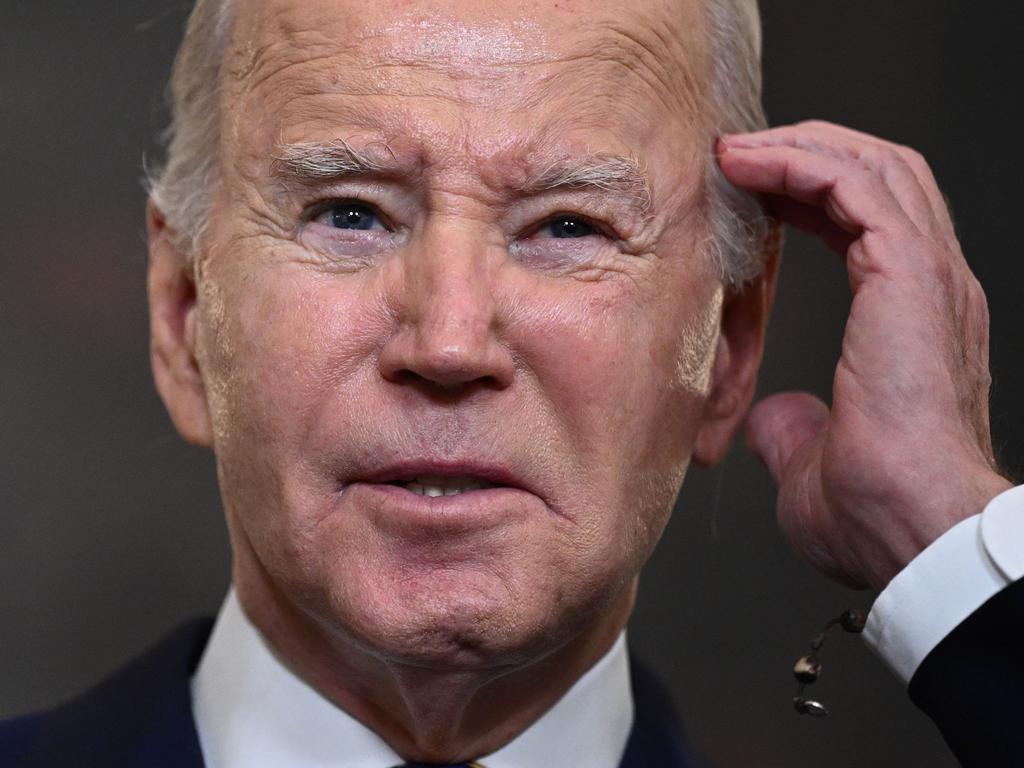A cognitive test couldn’t say whether a candidate is capable of being president
Results from the tests are just one factor that doctors consider before pursuing further evaluation to determine whether there is a cognitive issue

Concern over President Biden’s fitness for a second term has left some voters and politicians pushing him to undergo a cognitive test. Yet one test wouldn’t provide a final word on the president’s cognitive abilities, doctors said.
Doctors use cognitive tests as a screening tool to help inform their understanding of a patient’s cognitive function. The tests are designed to assess a person’s memory, attention, executive function, language and judgment. The assessments neither provide a diagnosis nor determine with certainty whether a patient has mild cognitive impairment, doctors said. Low scores indicating signs of possible dementia could provide more of a clear signal, though not a certain diagnosis.
Doctors would have to conduct further evaluation, including commissioning more tests like a PET scan.

To date the president hasn’t said he would undergo a cognitive assessment, telling ABC’s George Stephanopoulos on Friday: “I have a cognitive test every single day.” “Not only am I campaigning,” Biden added, “I’m running the world.” In February, after Biden underwent his annual physical, the president’s doctors determined he didn’t need a cognitive test, White House press secretary Karine Jean-Pierre said.
Biden’s cognitive fitness became a more prominent concern with members of his party and donors late last month after he appeared to stammer at times and, at others, appeared to lose his train of thought during a debate with former President Donald Trump. Questions over both candidates’ age — with Biden at age 81 and Trump at age 78 — have been on the minds of voters for years during their presidencies and 2024 campaigns.
While Trump was in office in 2018, the former president requested and underwent a Montreal Cognitive Assessment, or MoCA, amid speculation from his critics about his mental health. He scored a 30 out of 30 on the assessment, his doctor said at the time.

The MoCA is one of several quick tests patients can undergo as a screening for cognitive impairment by examining a patient’s memory, attention, language skills and orientation. Tests can vary in what questions they ask and which abilities they assess. Exams such as the MoCA ask patients to remember a set of words and recall the words multiple times during the assessment. They also have patients draw a cube or other geometric figure, and a clock with hands pointed to a certain time.
“The test is fairly easy to do for someone with a high level of education and no or even mild impairment,” said Dr. Kenneth Boockvar, director of the Division of Gerontology, Geriatrics and Palliative Care at the University of Alabama at Birmingham, who uses the MoCA test with patients. “It’s only a screening test. It’s not really diagnostic.” Medicare requires doctors to assess cognitive impairment in patients as part of their annual wellness visit, though cognitive tests aren’t always administered during those exams.
It is possible a patient could do well in the screening while having mild cognitive impairment, Boockvar said, speaking generally. Boockvar said he may use these tests as an initial starting point with new patients. If a patient shows some evidence of cognitive impairment, Boockvar may repeat the test periodically to see how they progress, he said.
The most thorough test assessing a patient’s cognitive health is a neuropsychological evaluation, which includes a variety of exams that could take several hours, said Dr. Charan Ranganath, director of the Dynamic Memory Lab at the University of California, Davis. Those exams are typically done if there is concern from the patient or their family members that something significant is wrong and aren’t typically administered simply because a patient has turned a certain age.
In addition, Ranganath said he believes doctors couldn’t use the results to determine whether a candidate was fit to hold office. There isn’t an accepted standard for making such a call, he said.
“You have two challenges: one is to take these kinds of tests and say something meaningful with them. But the other challenge is what does it take to do the job? What do we expect our people to do?” Ranganath said.
Doctors also look at other factors, beyond the results from a cognitive test, to help determine whether to further explore whether a patient has some kind of cognitive issue. Doctors also consider a patient’s medical history, physical exam, conversations with physicians and interviews with family members.
Depending on the various factors, a doctor may recommend a patient undergo additional testing or imaging with an MRI or a PET scan, blood tests or referrals to other specialists.

In February, Biden’s doctor declared the president “fit for duty” following an annual physical. The doctor’s assessment found the president’s gait has stiffened and his range of motion has slightly decreased due to arthritis. A neurological exam showed no findings to indicate disorders such as stroke, multiple sclerosis or Parkinson’s disease.
Cognition changes as people get older. Cognitive loss or impairment isn’t inevitable as people age, Boockvar said, but it is common. People become less resilient to stressors stemming from medical issues such as infections to emotional ones like losing a loved one.
Dr Lon Schneider, a professor of psychiatry, neurology and gerontology at the University of Southern California’s Keck School of Medicine, said a more apt assessment for both Biden and Trump would be a decisional-capacity evaluation. Schneider said these assessments, conducted through interviews, are similar to evaluations done in court cases to determine competency.
“This is not a matter of pass/fail, of ‘Come in and take your screening test for presidential competency or not, and if you score above 28 you’re competent and if you score below 28 you’re incompetent,’” Schneider said. “It’s much more complicated for all of us.” Determining whether someone in a high-level position in government or at a company can effectively do a job requires nuance and sensitivity, said Dr. Ian Grant, an assistant professor of neurology at Northwestern University Feinberg School of Medicine, speaking generally about the neurological effects of ageing. Ageing can affect the brain gradually.
“Some kind of caution just needs to be considered in terms of whether or not even just normal age-related changes are going to be able to be managed when this person is getting significantly older,” Grant said. “The more demanding the type of job, the more difficult even certain age-related changes may have in the long run.”
The Wall Street Journal






